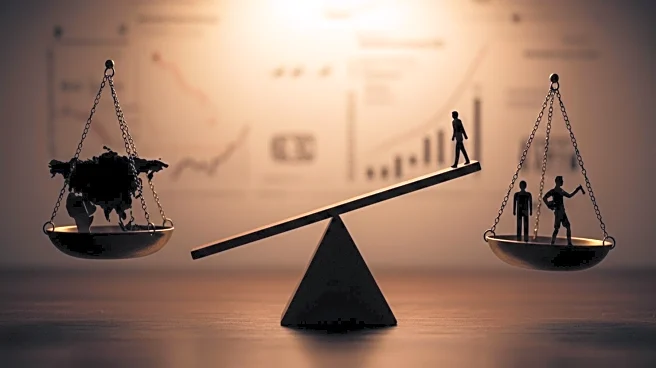What is the story about?
What's Happening?
The ongoing Israel-Gaza conflict has significantly impacted global markets, particularly Middle East equities and aid logistics. Energy-rich Gulf states like Saudi Arabia have shown resilience, with their stock indices performing well due to their role in OPEC+ and corporate innovation. Conversely, Egypt and the UAE have experienced declines in equity markets, reflecting concerns over trade disruptions and regional instability. The conflict has also highlighted the importance of aid logistics, with firms specializing in humanitarian relief gaining attention for their role in long-term development. The situation presents both challenges and opportunities for investors navigating the volatile geopolitical landscape.
Why It's Important?
The conflict underscores the fragility of interconnected economies and the need for strategic investment approaches. Investors face short-term volatility but can find opportunities in sectors like aid logistics and energy transition. The resilience of Gulf states offers a model for balancing risk and innovation, attracting institutional capital. The focus on ESG-driven investments in aid logistics and clean energy initiatives reflects a shift towards sustainable development, appealing to socially conscious investors. The geopolitical dynamics influence market strategies, with safe-haven assets like gold gaining popularity as investors seek stability amid uncertainty.
Beyond the Headlines
The conflict has accelerated trends in energy transition, with Gulf states investing in green hydrogen and AI-ready power grids. These initiatives align with global decarbonization goals and offer diversification opportunities for investors. The rise of aid logistics as a strategic sector highlights the intersection of humanitarian efforts and economic development. The situation prompts a reevaluation of investment strategies, emphasizing the importance of resilience and adaptability in a fractured geopolitical landscape. The long-term implications may include shifts in global trade patterns and increased focus on sustainable infrastructure.















